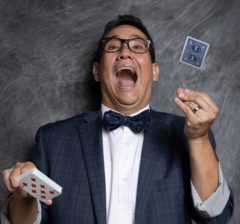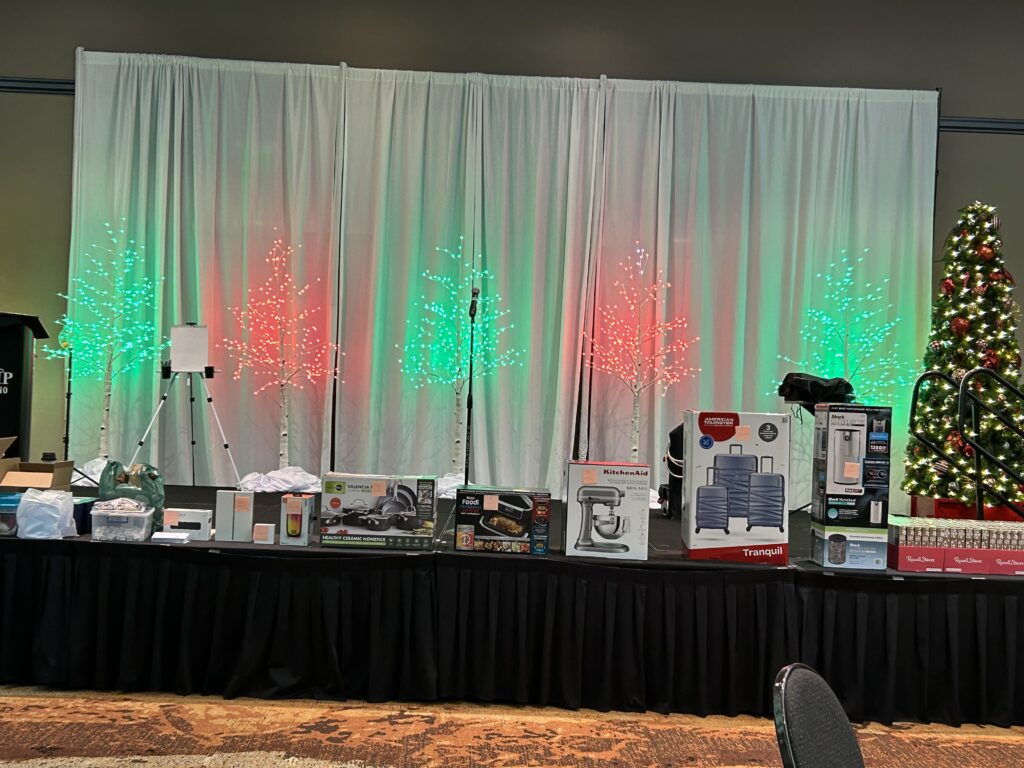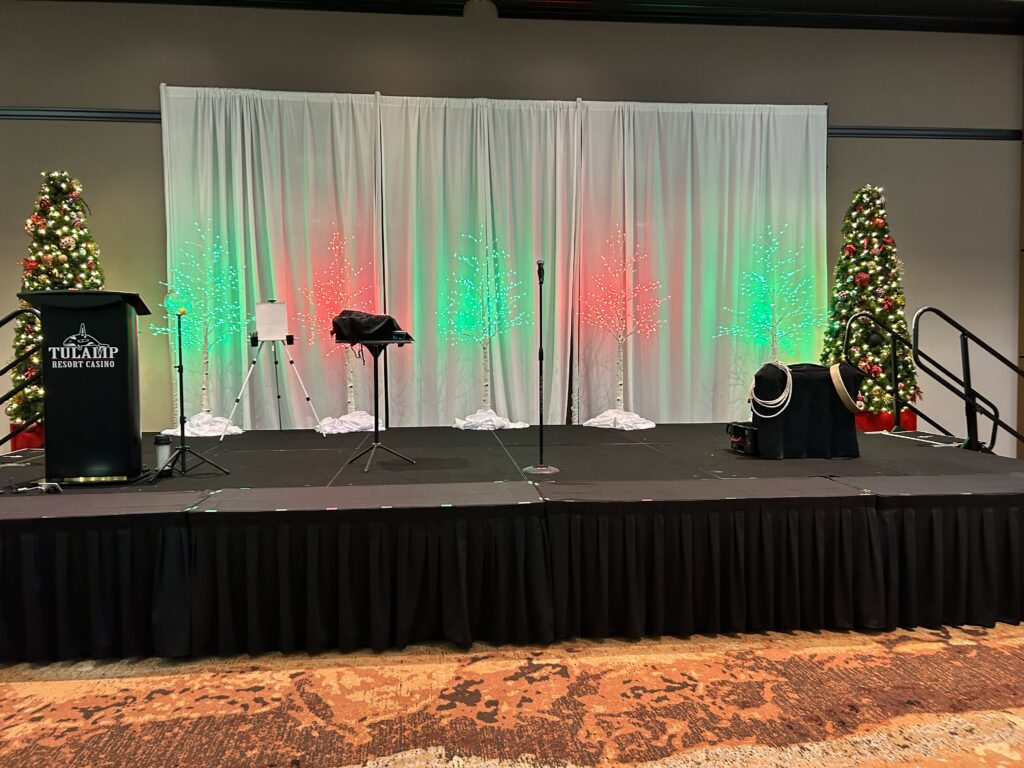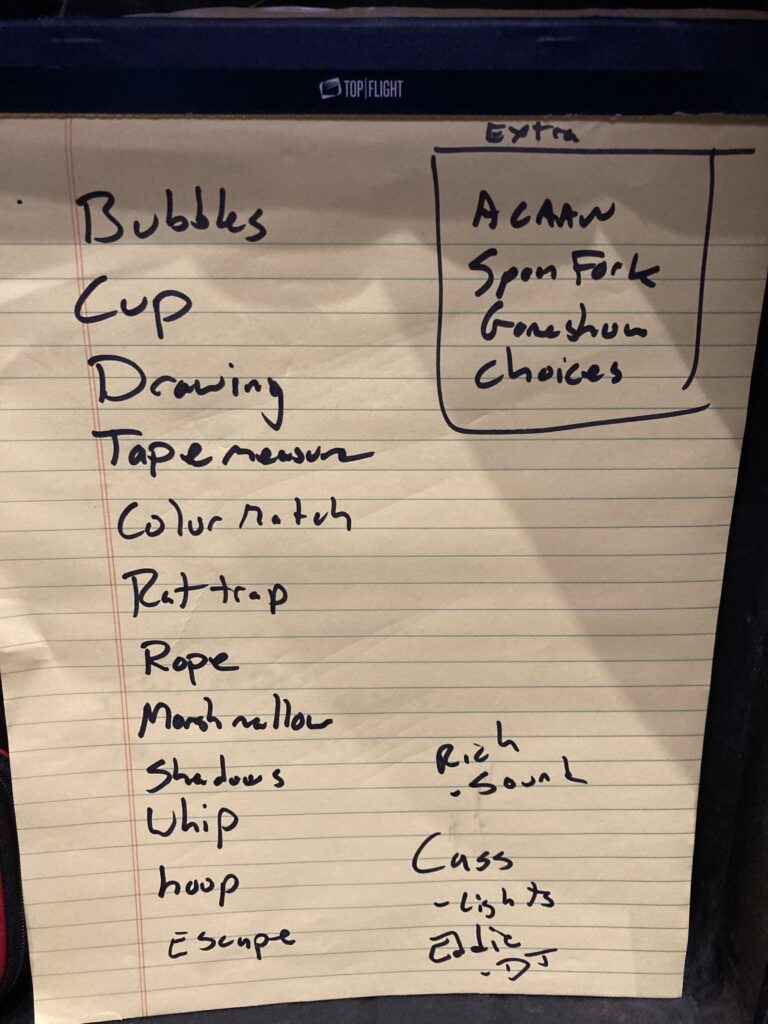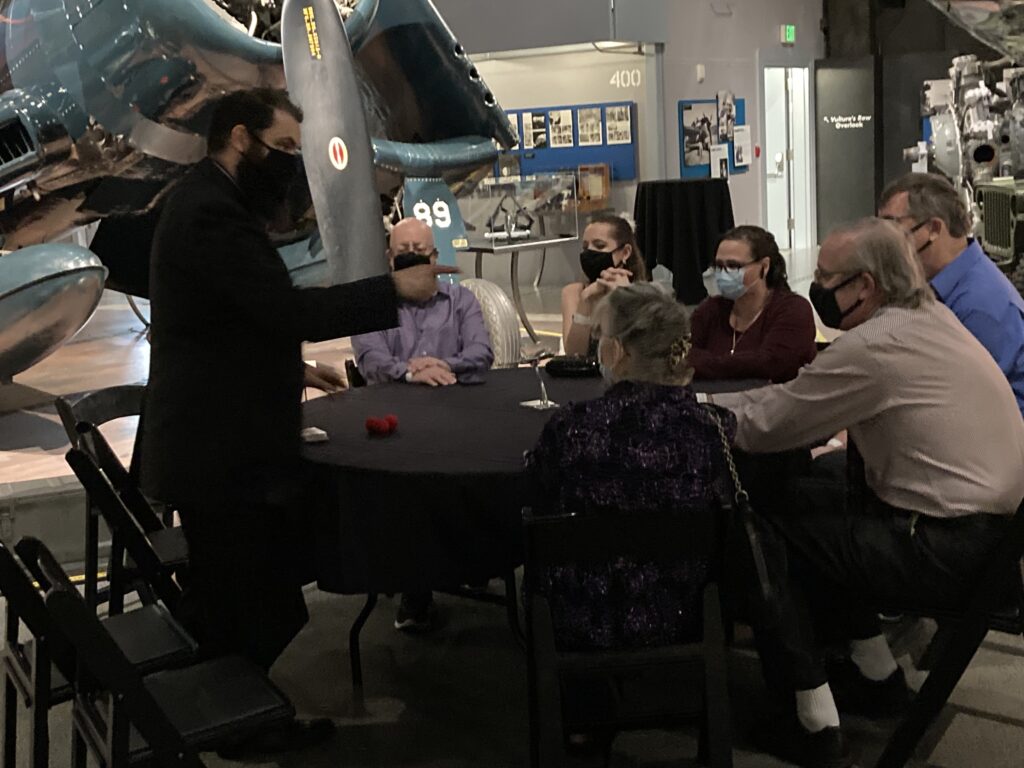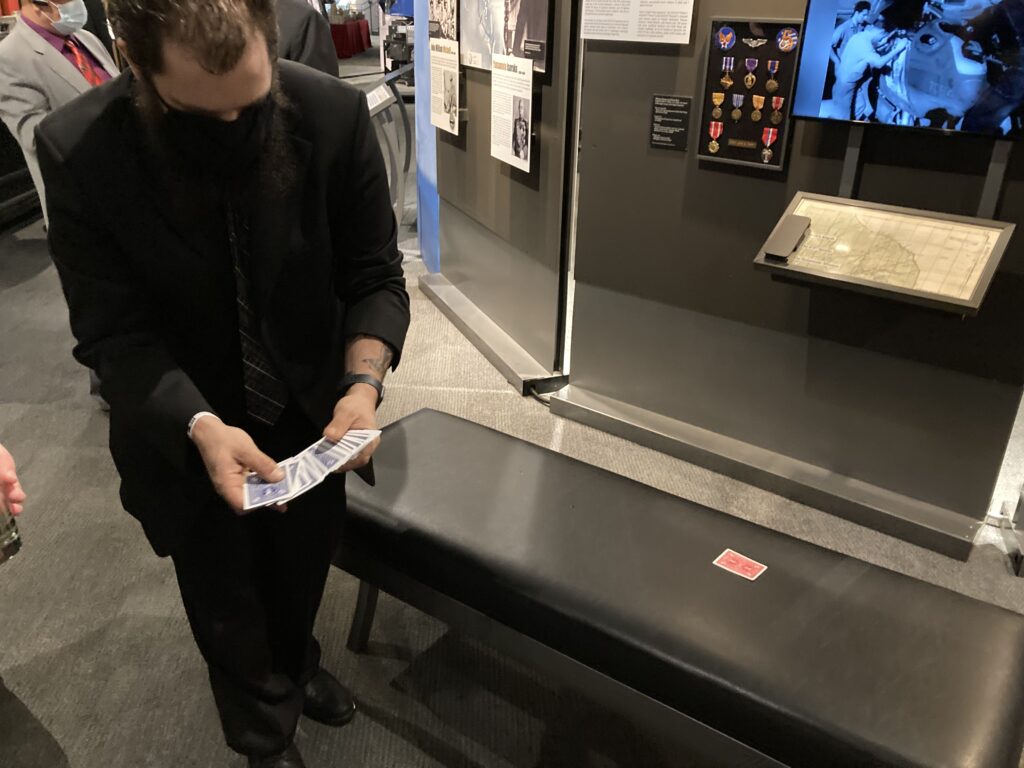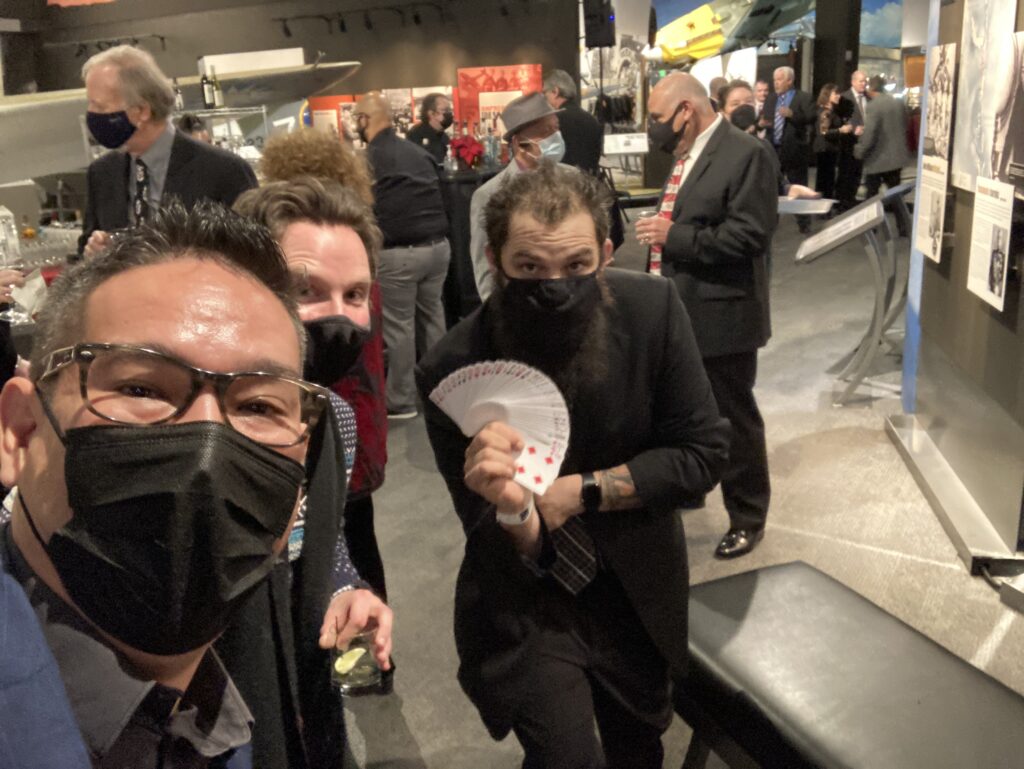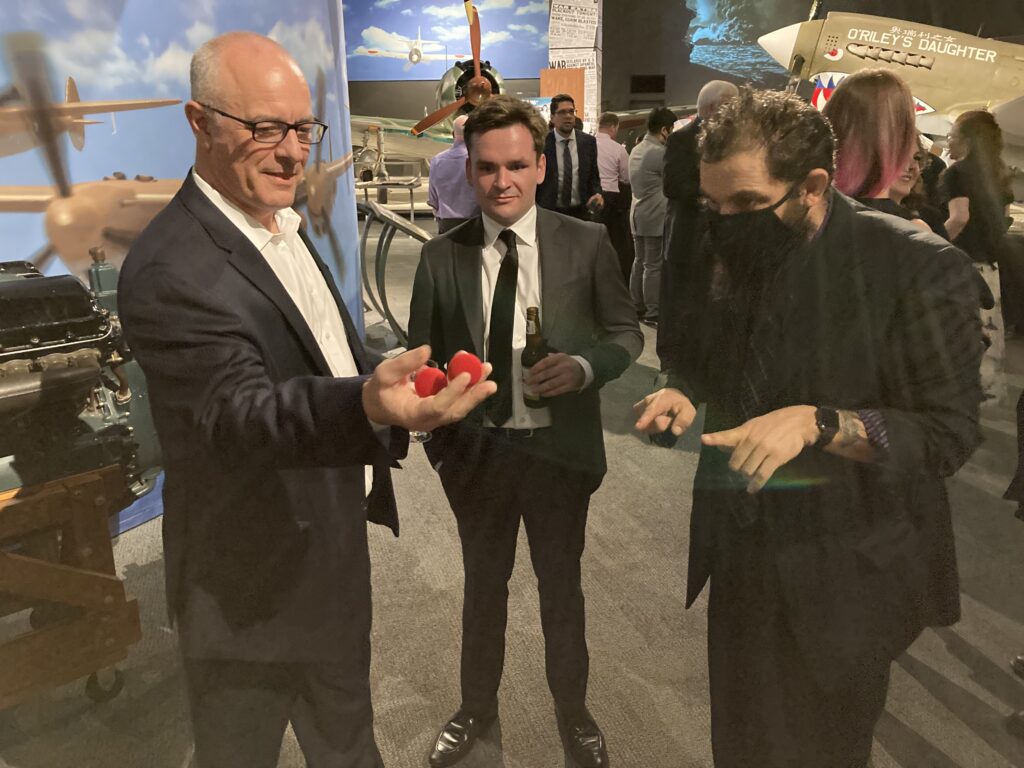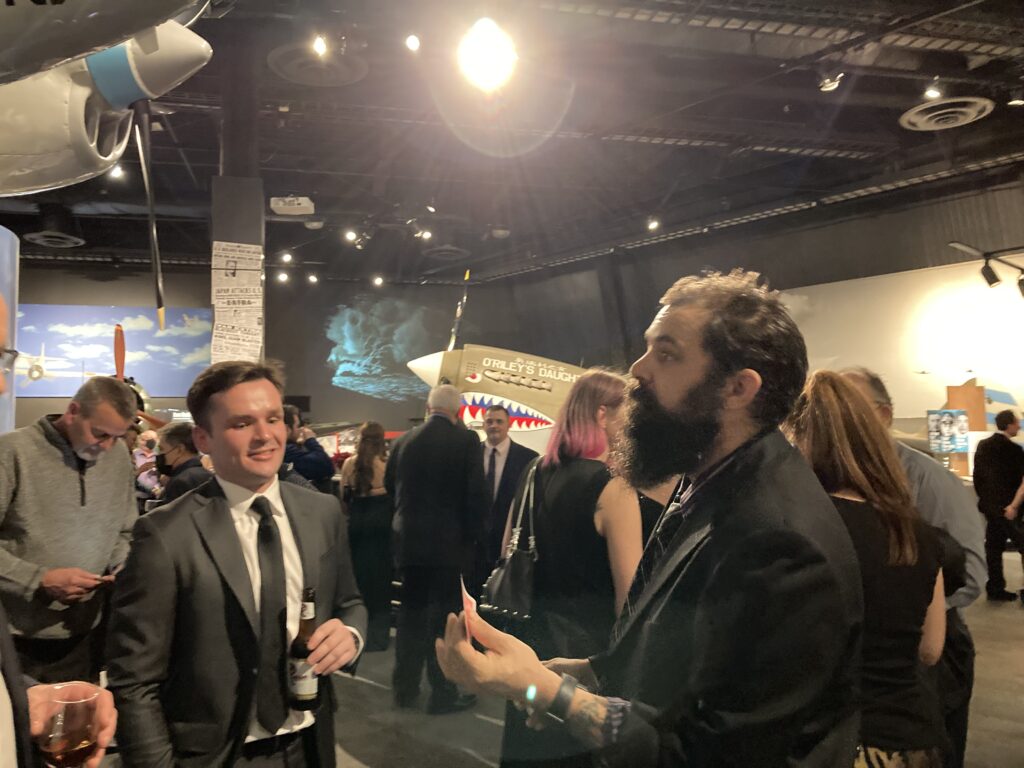One of the holiday parties I did this month was a HUGE event with 1,600 people. One thing the event planner didn’t give me was any sort of credentials to get in and out of the building once the event started. I honestly didn’t think about it until after my roving set and I was going to move that gear and clothes to my car to make packing out after the show quicker.
Luckily the green room was for all the “vendors” and I happened to be chatting with someone from the security company. I asked if the security at the parking lot door would let me back in and he said no. His suggestion was to call the event planner and ask for a lanyard. With the event underway and an event this large (it took up two floors of the convention center!) they last thing I want to do is bug the event planner for a lanyard/badge. They’re probably dealing with a lot of problems, like catering issues or whatever.
Here’s the solution I came up with. I learned that the security company was all retired cops and they all knew each other. I took a picture with the guy I was chatting with and got his name and number.
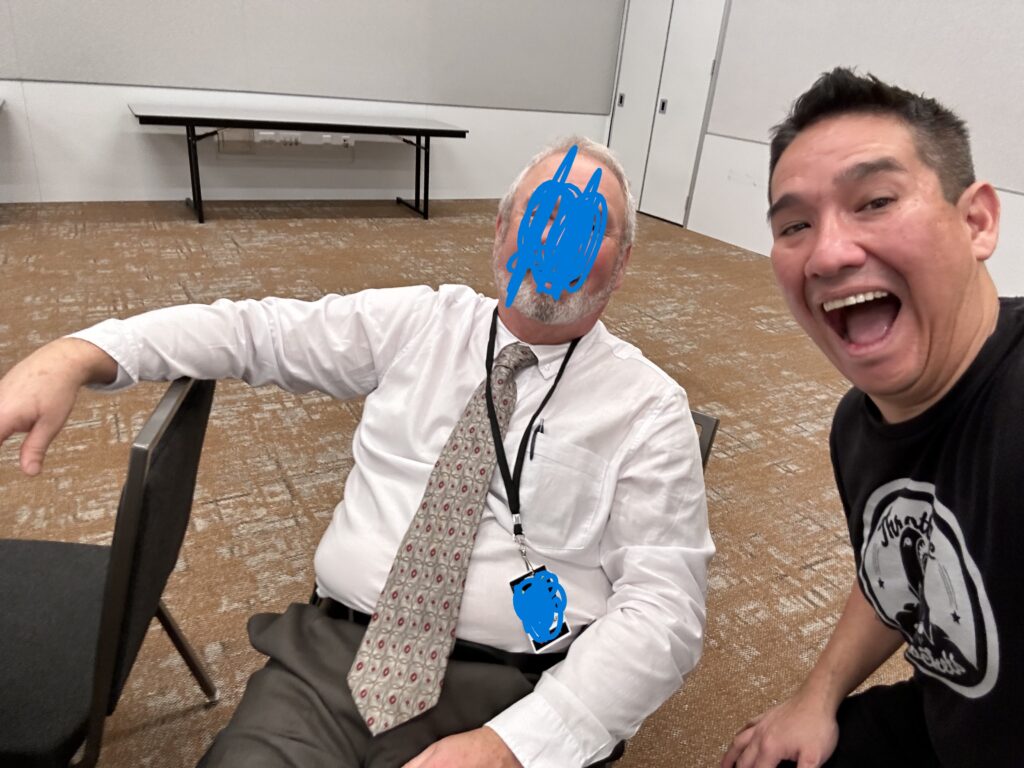
When I tired to get back into the building I was stopped by security how pressed me about me not having a lanyard with a badge. I showed them the picture and told them to call Jeff and he’d vouch for me. As soon as they saw the picture, they let me in!
Sure, asking the event planner for a badge is 100% reasonable. However I try to be easy to work with and minor problems myself. That’s a big secret to success in entertainment, be easy to work!
-Louie
